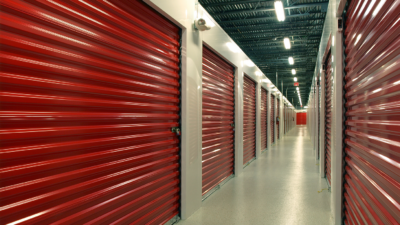With many consumers transitioning their shopping from typical retail store visits to e-commerce platforms, online transactions are expected to encompass 10 percent of all retail sales in 2016. And some futurists are predicting that 60 percent of all retail sales will be e-commerce based by 2025.
But this increase in e-commerce sales has brought with it a new era of consumer demands and expectations. Consumers now want near-immediate delivery of products to their doorstep—without incurring additional shipping or delivery costs.
While free two-day delivery options (such as Amazon Prime) have placated consumers for the past three to five years, the race is on for faster delivery times. Retailers have realized that speedy delivery can be a highly differentiating trait; making their service (and brand) much more desirable to consumers than what their competitors can offer. In fact, one- or two-day delivery to the consumer is seen a core-competency by many online/e-commerce retailers. And the holy grail of e-commerce retailing—same day delivery—is now within reach for the larger e-commerce platforms such as Walmart.com and Amazon.com.
So how do these e-commerce trends affect Chicago’s industrial real estate market?
The answer is: In a very positive way!
The end goal of many e-commerce retailers is the ability to deliver to a majority of the nation’s population via same-day or one-day delivery (with two-day delivery being the absolute maximum to rural areas). The only way for these companies to accomplish that goal is by adding a large number of smaller, localized distribution centers near large population centers (such as in major cities).
- These local distribution centers are relatively small facilities of 50,000 to 150,000 square feet, a size which is expected to become smaller (25,000 – 100,000 square feet) as the number of distribution points increases for that retailer. Retailers will have the same footprint of distribution space, just spread across many small distribution centers throughout the city.
- These local DC’s are very small when compared to suburban regional distribution centers (RDC’s) of 500,000 to 1,000,000 square feet, or mega-distribution and fulfillment centers (Mega DC’s) which are typically larger than 1,000,000 square feet.
- The local distribution centers will receive product on a daily basis from the larger RDC’s and likely direct from suppliers as well.
- At the local DC, workers will “pick-and-pack” orders headed to individual consumers for delivery. The actual delivery can take a number of forms depending on the delivery time promised, but the majority of packages are delivered by parcel couriers such as the US Postal Service last-mile service and typical UPS delivery vans, as well as private contract delivery firms working for the retailer. Future delivery methods may include autonomous cars, Uber drivers, or even airborne drones.
As e-commerce retailers add complexity to their supply chains and work to affect quicker and quicker delivery times, this has created significant demand for local distribution centers around major cities. Often called “Last Mile” distribution centers, these facilities are becoming smaller in size, more numerous in quantity, with the goal of getting as close to the end consumer as possible.
E-commerce retailers are expected to continue adding local distribution facilities near highly populated urban neighborhoods. Here in Chicago, Amazon.com is working to be closer to the consumer, hoping to eventually have same-day delivery available across the metro area. Amazon recently leased 51,000 square feet in Chicago’s near north side on Goose Island, as well as 150,000 square feet on the near south side of Western Avenue, and is continuing to local for additional sites.
And as consumers place more and more reliance on e-commerce for their shopping, and demand faster delivery timeframes, an increasing number of e-commerce retailers will be competing for a limited number of local distribution center facilities in the Metro area. So, over the next few years, we can expect a continued proliferation of small distribution centers throughout the metro area by a wide array of retailers.
This situation is having a very positive effect on demand for distribution facilities in Chicago. However, the ability to meet retailers’ needs for local distribution centers is a definite function of the number of suitable distribution facilities that are available for occupancy in the area. If the facilities don’t exist, retailers will look to developers to repurpose existing facilities or build new facilities where land sites are available.
Area industrial developers are working to meet the current demand for local distribution centers, as well as planning new developments to meet demand in the future. For instance, Chicago’s Clarius Partners has proposed a development in North Lawndale with two speculative buildings to be constructed that are designed for use as local distribution centers.
As consumers continue to demand more from retailers, and more retailers develop e-commerce infrastructure, we can expect this trend to continue sharply upward over the next decade. The will be significant demand for distribution facilities in Chicago, and local industrial developers will need to continue to find creative redevelopment solutions.
Charles is a Senior Vice President within Colliers International’s Industrial Advisory Group and a founding member of the Colliers Logistics and Transportation Solutions Group. He works with companies across the U.S. on the real estate side of the supply chain, assisting with the acquisition of ‘mission-critical’ distribution facilities.

 Charles Canale
Charles Canale

 Craig Hurvitz
Craig Hurvitz
 Aaron Jodka
Aaron Jodka